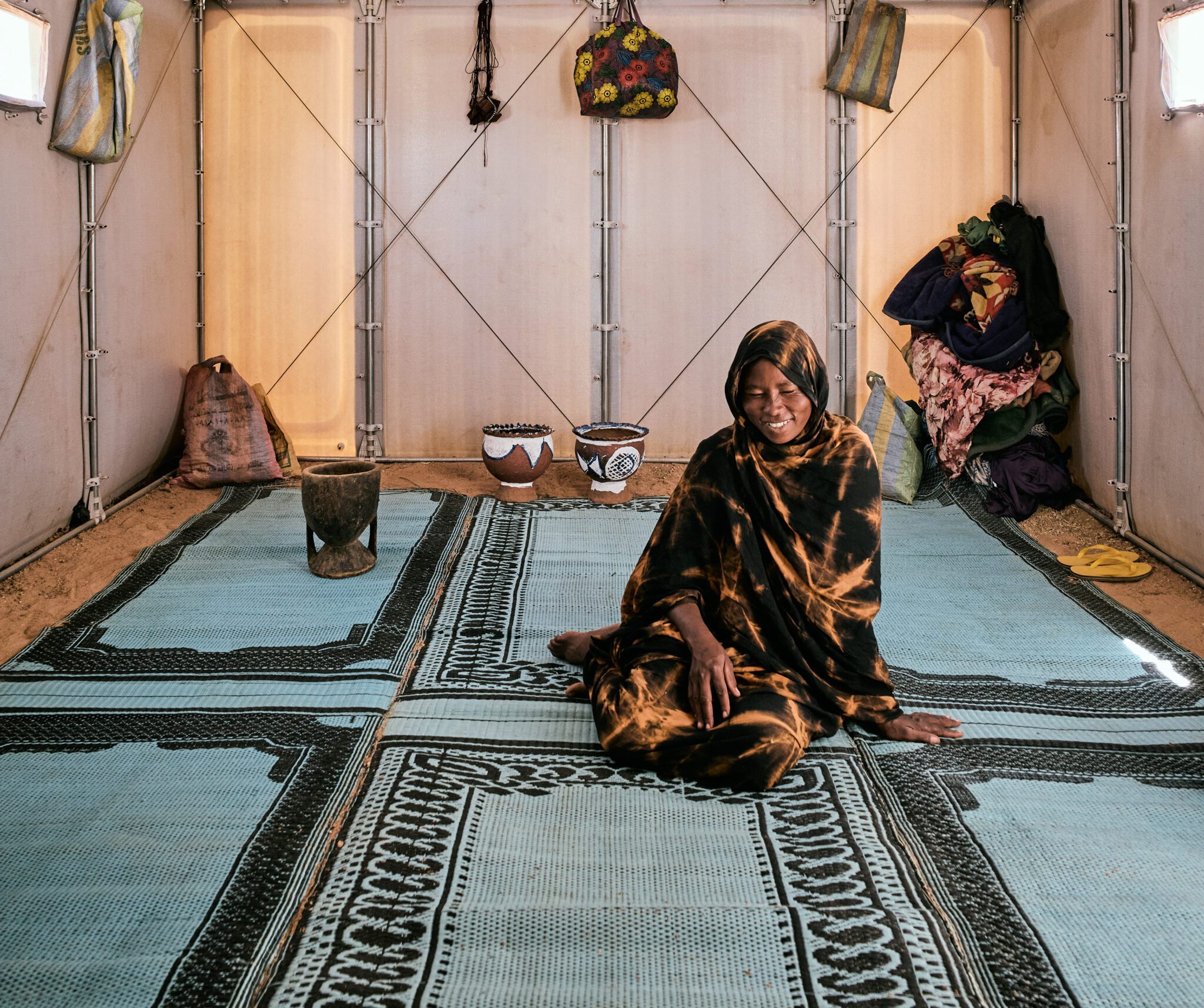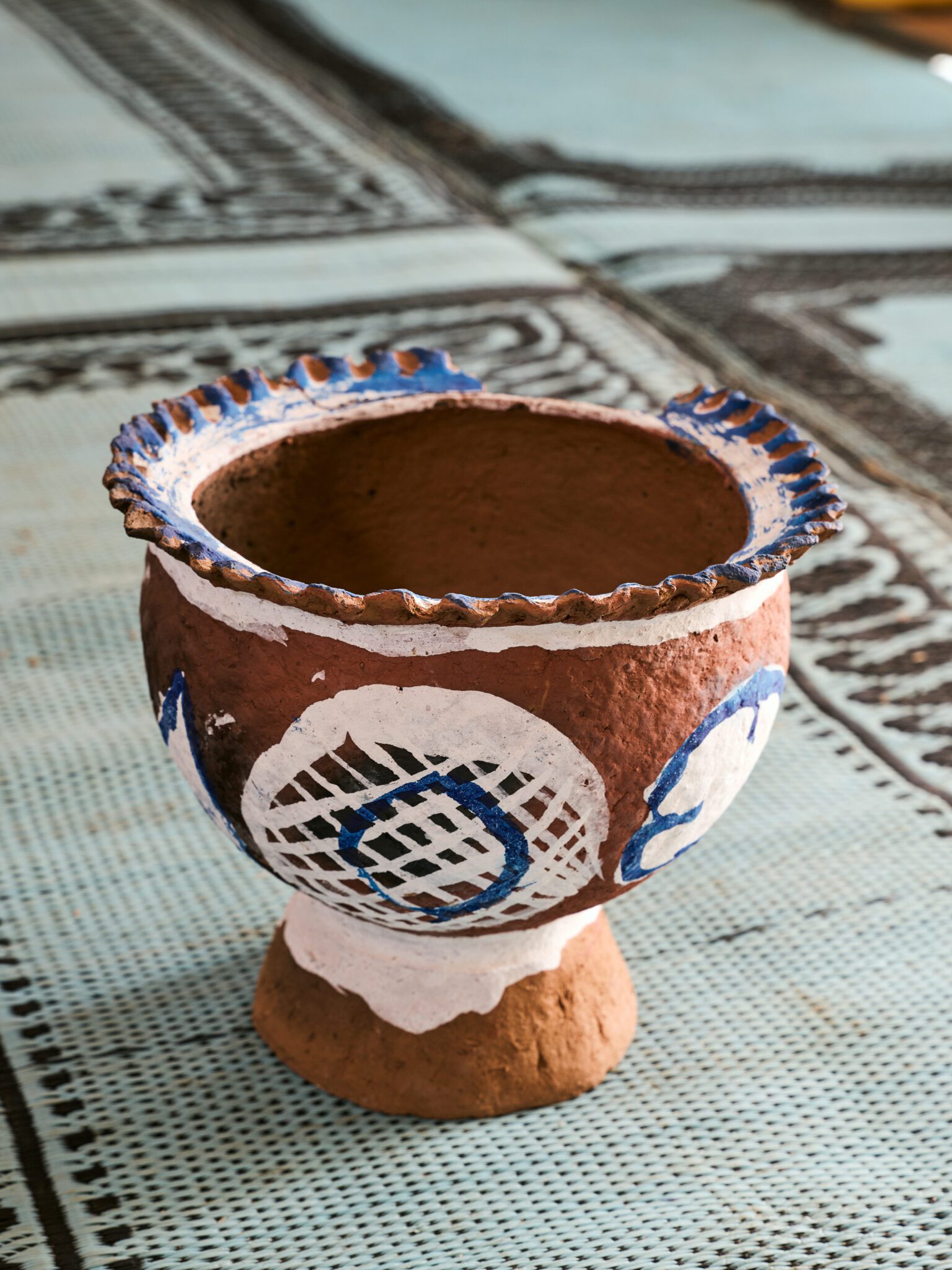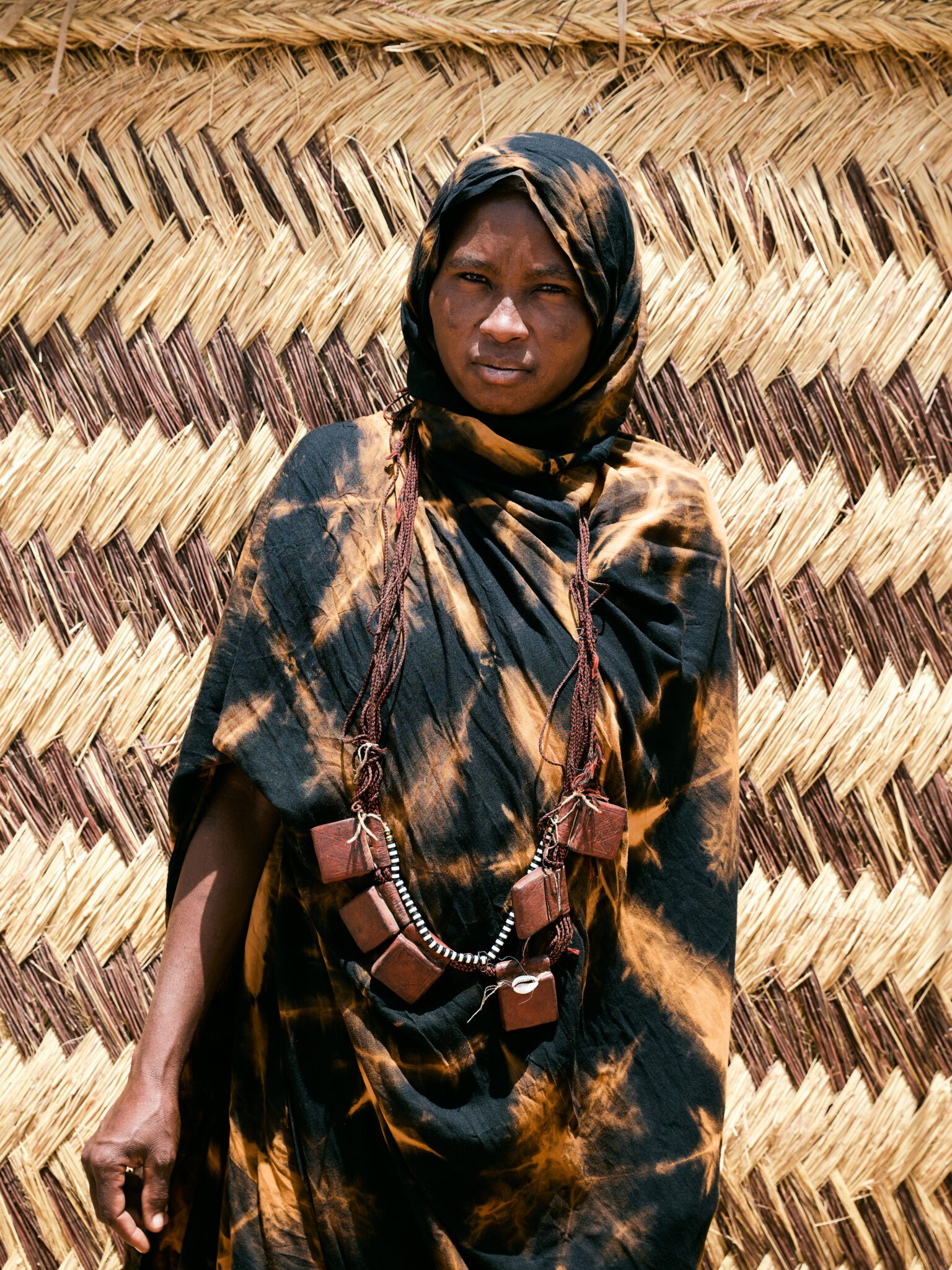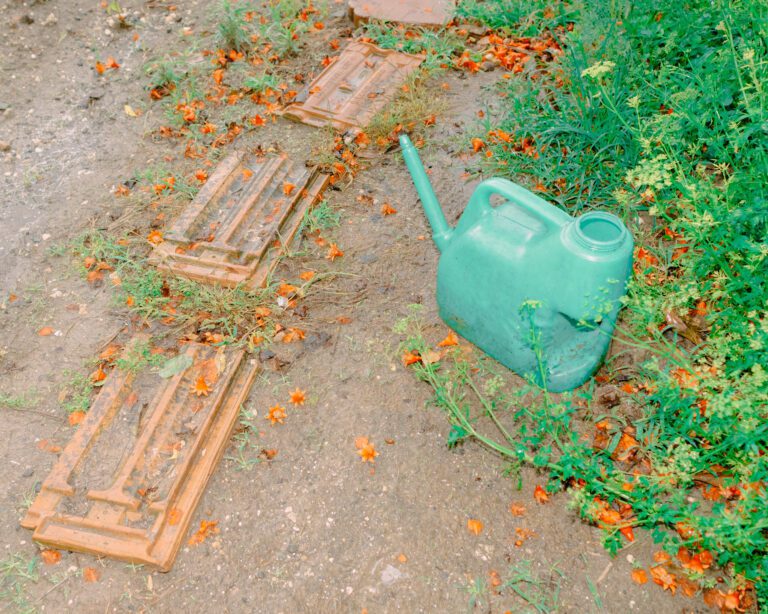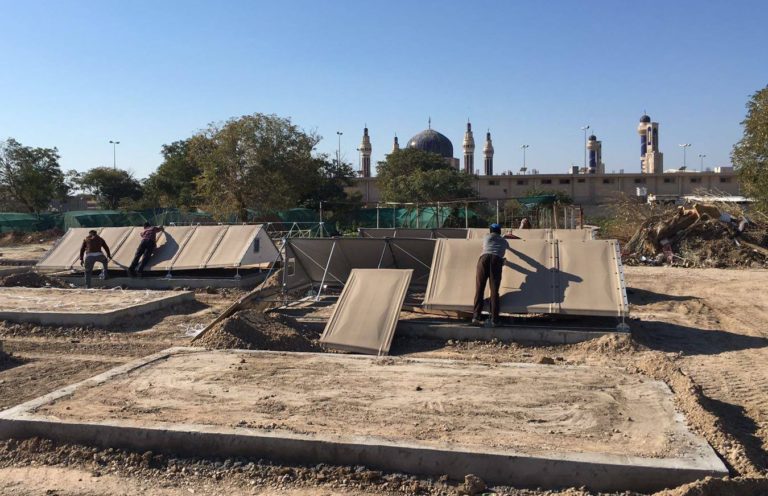A story from the What Makes a Home photo project.
“I wore this necklace the night we fled. They looted and burned down our house, but we managed to escape. As we ran, I lost my husband in the chaos. Some people have told me that he ended up in Libya. Others say he is dead. This was almost a year ago, now. He gave me this necklace on our wedding day – it’s the only thing I have left from our life in Sudan.”
Kobra, her four children, and her mother live in a temporary shelter in the Farchana refugee camp in eastern Chad. The shelter is sparsely furnished. Kobra stores the family’s possessions in plastic bags hung on the walls. At night, they roll out a big plastic mat on which they all sleep. Two handmade clay pots, delicately painted in white and blue, stand by one of the short walls. Kobra bought them recently for 60 francs [10 cents] each.
“I saw them at the market and thought they were beautiful. When I have enough money, I will buy pink flowers to put in them. They remind me of home.”
Kobra used to sell tomatoes, onions, and cooking oil in the market back in Sudan. Her husband worked on a peanut farm. They lived with their children in a house with a kitchen and a large living room.
“We couldn’t bring anything besides what we wore. We had to leave so much behind, including my gold necklaces, and all our savings,” Kobra says. The family’s two donkeys were burned to death in their garden.
Almost everything she and the family now own has been given to them by local Chadians and Sudanese refugees. The black and orange tie-dye shawl that she is wearing was a donation from the UN.
“We hadn’t planned to flee, even though we knew the fighting was approaching our town.”
During the four days before they left, it wasn’t safe to leave the house. Kobra made a paste of water and flour for the children to eat.
“As we heard the shooting getting closer to our neighbourhood, we decided to escape. It was around eight in the evening. I was so scared. We just ran.”
Kobra says she cannot speak about the things she witnessed in Sudan. “I don’t want to return,” she says. She sits on the ground under a grass sunshade she made herself. She sold some of the rice and salt the World Food Program had given her to buy the millet grass.
“What I need the most right now is money. For food. I have nothing. If I had money, I would start selling things in the market. I would build another brick house to make a separate room for the children. And I’d treat my eye. I injured it when I ran into a branch the night we fled.”
Kobra has a hand-carved wooden bowl for grinding dried vegetables like okra and tomatoes, but she doesn’t use it very often. Instead, she cooks rice and peanuts for her children.
“Sometimes I borrow a mobile phone from someone in the camp and try to call my husband, but he never answers. His phone is always turned off.”

